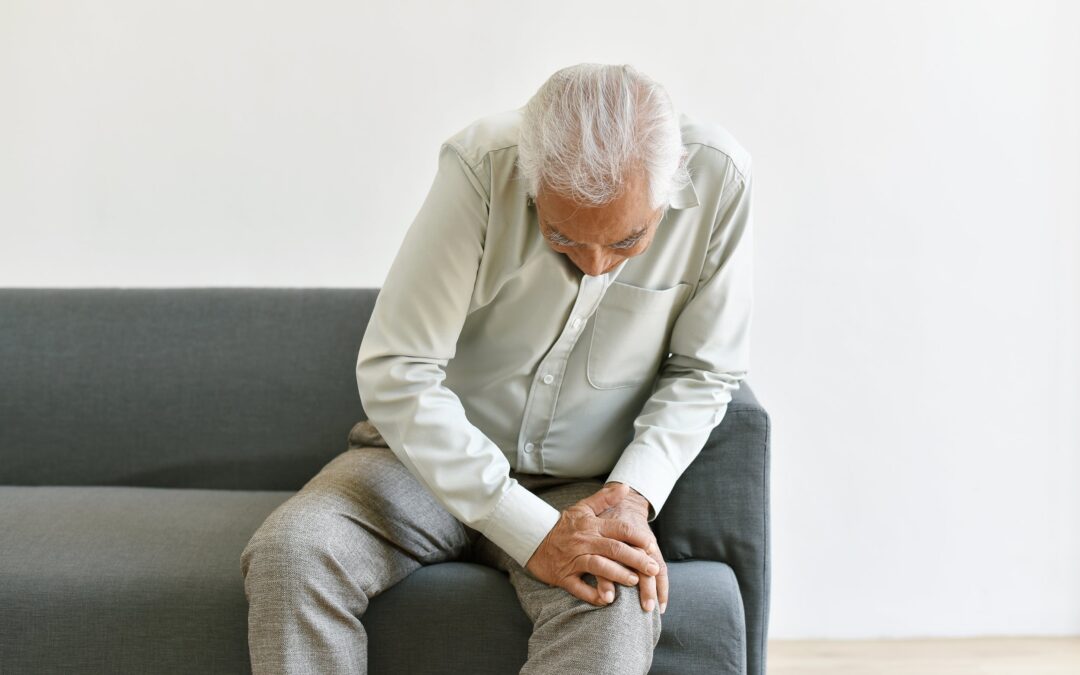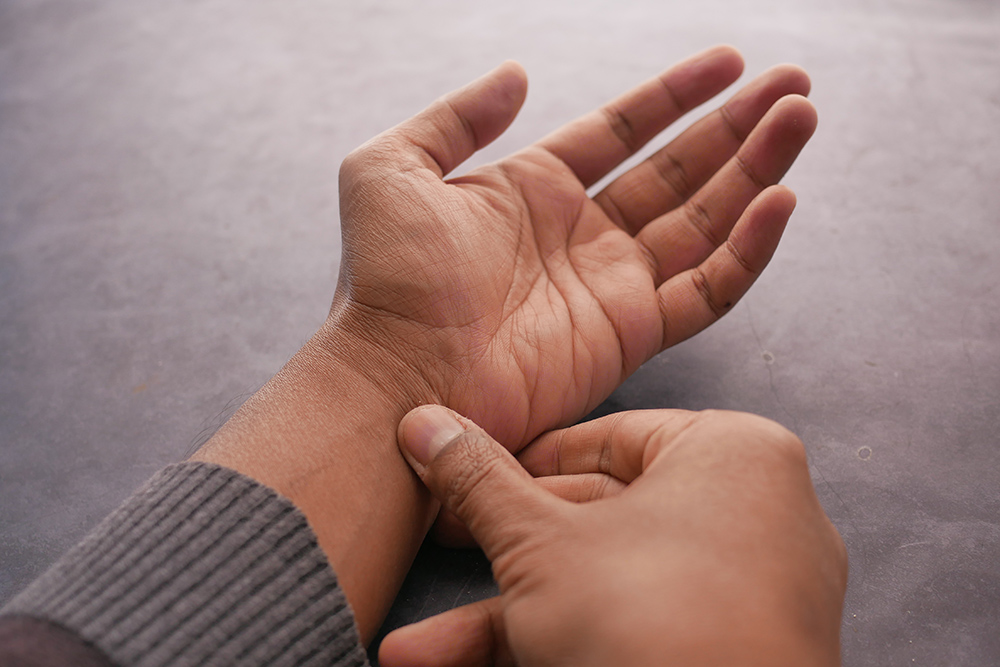Contents
The human hand is a complex structure made up of 27 bones, 29 joints, and numerous muscles, tendons and ligaments. The joints in the hand are classified into three main groups:
- Carpometacarpal (CMC) joints — These joints are located at the base of the fingers, where the metacarpal bones meet the carpal bones of the wrist.
- Metacarpophalangeal (MCP) joints — These joints are located at the base of the fingers, where the metacarpal bones meet the proximal phalanges.
- Interphalangeal (IP) joints — These joints are located within the fingers, between the phalanges.
When you crack your knuckles, you may have been told that you should stop because you’ll cause yourself to develop arthritis. Is that fact or fiction? First, you need to understand what goes on when you crack your knuckles to understand if there’s a chance you’ll develop arthritis because of this habit.
What happens when you crack your knuckles?
The popping sound you hear when you crack your knuckles is mainly associated with the metacarpophalangeal (MCP) joints. When you crack your knuckles, you’re actually creating and then popping gas bubbles within the joint. Here’s how it works:
- Gas bubble formation — Inside your joints, there’s a lubricating fluid called synovial fluid. This fluid contains gases including oxygen, nitrogen and carbon dioxide. When you stretch or bend your fingers to crack your knuckles, you create negative pressure in the joint. This causes the gases to come out of the fluid and form tiny bubbles. You can’t crack the same knuckle or joint twice quickly, because it takes time for gas bubbles to accumulate again.
- Popping sound — The bubbles in the synovial fluid collapse or burst, creating the characteristic popping or cracking sound you hear. This sound can be similar to the noise made when you open a carbonated drink.
- Joint movement — The act of cracking your knuckles involves stretching and moving the joint. This movement can cause a temporary increase in the space within the joint capsule, which contributes to the popping sound.
- Temporary relief — Some people find that cracking their knuckles gives a feeling of relief or release. This may be because the movement stretches the ligaments and tendons around the joint, temporarily increasing flexibility.
While the CMC and IP joints can also be cracked, the MCP joints are most commonly associated with this behavior.
Does cracking your knuckles harm the joints?
Research has shown that knuckle cracking doesn’t cause arthritis or long-term joint damage. The joints are not harmed by the cracking sound itself. However, if you experience pain or discomfort when cracking your knuckles, it may be a sign of an underlying issue.
Some potential causes for pain or discomfort when cracking your knuckles include:
- Joint inflammation — Frequent knuckle cracking can irritate the joints and surrounding tissue, leading to inflammation or discomfort. Conditions like arthritis can exacerbate this pain.
- Tendinitis or bursitis — Inflammation of the tendons or bursae around the joints can also cause pain and discomfort. Cracking your knuckles may put stress on the tendons and ligaments around the joint, especially if done forcefully or excessively.
- Neurological issues — Nerve damage or irritation can sometimes lead to pain or discomfort in the hands and knuckles. |
- Overuse or repetitive strain — Excessive knuckle cracking or other repetitive hand movements can lead to strain and inflammation in the joints.
- Increased pressure — The act of cracking may momentarily increase pressure within the joint capsule, which could cause pain if the joint is already sensitive.
- Underlying joint conditions — Conditions like osteoarthritis or rheumatoid arthritis can make joints more sensitive and prone to pain during activities like knuckle cracking.
- Joint misalignment — If the joint is slightly misaligned, cracking it may cause discomfort or pain.
If you’re concerned about persistent pain or discomfort associated with knuckle cracking, it’s recommended to consult with a doctor or physical therapist for a proper evaluation. They can help determine the underlying cause and recommend appropriate treatment.
Why do people crack their knuckles?
Up to 54% of people crack their knuckles for a variety of reasons, for example:
- Habit — Some people may crack their knuckles out of habit, without realizing they’re doing it. It can also be a way to keep busy or distract yourself.
- Stress relief — Some people find that cracking their knuckles can help relieve stress or anxiety.
- Joint discomfort — If a joint feels stiff or uncomfortable, cracking it may provide temporary relief.
- Sound preference — Some people simply enjoy the sound of their knuckles popping.
- Mobility — Some people think it helps make their fingers feel more flexible. It may be used to “warm up” your hands before you do something.
If you want to stop cracking your knuckles, you can try the following strategies:
- Think about what triggers your desire to crack your knuckles, and avoid it.
- Keep your hands busy with fidget toys or stress balls.
- Practice stress management.
- When you catch yourself about to crack your knuckles, do something else.
If cracking your knuckles doesn’t cause arthritis, what does?
Cracking your knuckles hasn’t been shown to cause arthritis, but several factors and conditions can contribute to the development of arthritis. However, while it may not be a direct cause, excessive knuckle cracking can contribute to joint stress and inflammation over time. Some causes and risk factors for arthritis include:
- Age — Osteoarthritis is more common in older adults, as the joints naturally wear down over time.
- Genetics — Some people may have a genetic predisposition to arthritis.
- Gender — Some forms of arthritis, like rheumatoid arthritis, are more common in women.
- Injuries — Joint injuries can increase the risk of arthritis, including:
- Sprains
- Strains
- Fractures
- Autoimmune diseases — Conditions like rheumatoid arthritis or lupus can cause inflammation in the joints.
- Obesity — Excess weight puts additional stress on weight-bearing joints, which can lead to osteoarthritis.
- Metabolic disorders — Disorders such as gout can lead to arthritis.
- Infections — Certain infections, such as Lyme disease or gonorrhea, can cause arthritis.
- Occupation or lifestyle factors — Repetitive movements or jobs that put strain on the joints can increase the risk of arthritis.
Physical therapy for arthritis in the hand and other hand conditions
Physical therapy can be a valuable approach to help manage hand arthritis and other hand conditions. Physical therapy can help:
-
- Reduce pain
- Improve range of motion
- Strengthen muscles
- Improve function
Effective physical therapy techniques for hand conditions can include:
- Therapeutic exercises — Your physical therapist may prescribe certain exercises intended to help improve your range of motion, strength and coordination.
- Manual therapy — Your physical therapist may use a variety of manual therapy approaches, like soft tissue manipulation or joint mobilization.
- Soft tissue manipulation — This technique involves your physical therapist applying pressure to the soft tissue around the joints to help release adhesions and improve flexibility.
- Joint mobilization — This technique involves your physical therapist moving the joints in the hand and wrist to improve range of motion and reduce stiffness.
- Splinting — Your physical therapist may recommend custom-made splints to help immobilize the joints, reduce pain and promote healing. A custom splint can help correct deformities and improve function.
The specific physical therapy techniques used in your treatment plan will depend on your unique hand conditions and individual needs. Your physical therapist will create a personalized treatment plan designed to help you achieve your recovery goals.
Your path to healthy hands starts with Lattimore Physical Therapy
At Lattimore Physical Therapy, we understand that persistent pain or discomfort when you crack your knuckles can be a frustrating experience. While cracking your knuckles doesn’t directly cause arthritis, it may be a symptom of an underlying issue. Our team of experienced physical therapists, including over 30 Certification of Manual Physical Therapy therapists (COMTs), can help identify and address the root cause of your discomfort. We’ll create a personalized treatment plan tailored to your specific needs to help you reach optimal hand health. We can help you effectively manage your hand pain, improve your overall hand function and prevent future complications.
Contact our team today for more information or to schedule an initial appointment.


